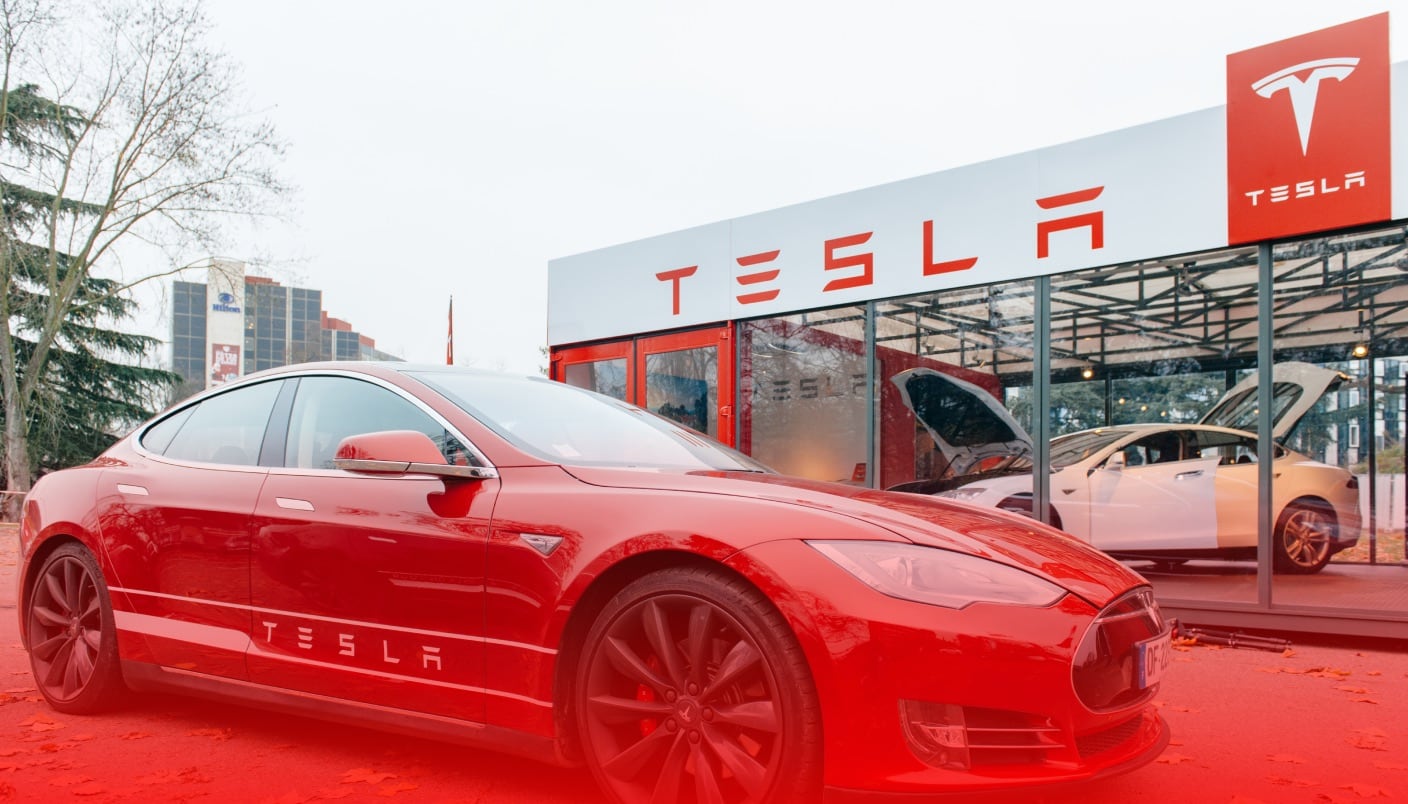Breaking News! 🚨 Top 10 brokers is here! See the most trusted trading platforms of 2024. Go now!
Tesla’s Growth Trajectory: Evaluating Stock Performance
Evaluate Tesla's growth trajectory and stock performance. Get expert insights and recommendations for investors considering Tesla stock.
2 years ago, Apr 09, 10:16 am

Tesla, Inc. (NASDAQ: TSLA) is an American automotive and clean energy company based in Austin, Texas. The company specializes in electric vehicle manufacturing, and also produces solar panels and other related products. Tesla has been one of the most successful companies in the stock market in recent years, with its share price rising over 1000% in the past five years.
That’s why you should pay attention to its stock, which many investors and traders claim will appreciate in value over the next few quarters.
Recent Performance and Growth Trajectory
The company’s growth has been driven by a number of factors, including strong vehicle sales, increasing production capacity, and continued innovation.
Strong Vehicle Sales
Tesla’s vehicle sales have been growing rapidly in recent years. The company’s Model 3 and Model Y are two of the most popular electric vehicles on the market. In 2023, Tesla delivered over 936,000 vehicles, a 71% increase from the previous year. The company’s sales are expected to continue to grow in the coming years, as demand for electric vehicles continues to rise.
Model 3 and Model Y Dominance
The Model 3 and Model Y have been particularly successful, accounting for the majority of Tesla’s sales. The Model 3 is a mid-size sedan that offers a long range and a variety of features at a relatively affordable price. The Model Y is a compact SUV that offers similar features to the Model 3, but with more cargo space and seating capacity.
Geographic Expansion
Tesla is also expanding its geographic reach. The company has opened new factories in China and Europe, and it is planning to open additional factories in North America. This expansion will allow Tesla to produce more vehicles and serve more customers around the world.
Increasing Production Capacity
Tesla is increasing its production capacity to meet the growing demand for its vehicles. The company is opening new factories in Texas, Berlin, and Shanghai. These new factories will significantly increase Tesla’s production capacity, allowing the company to produce more vehicles and meet the growing demand.
Gigafactories
Tesla’s factories are called Gigafactories, and they are some of the most advanced manufacturing facilities in the world. The Gigafactories are designed to produce large volumes of vehicles at a low cost. Tesla is also investing in new technologies to improve the efficiency of its manufacturing process.
Continued Innovation
Tesla is investing heavily in research and development, with a focus on autonomous driving and battery technology. The company’s Autopilot system is one of the most advanced autonomous driving systems on the market. Tesla is also developing new battery technologies that will make its vehicles more affordable and have a longer range.
Autopilot and FSD
Tesla’s Autopilot system is a suite of features that allows drivers to take their hands off the wheel and let the car drive itself. The system is constantly being improved, and Tesla is working on developing a fully autonomous driving system.
Battery Technology
Tesla is also developing new battery technologies. The company’s current batteries are based on lithium-ion technology, but Tesla is working on developing new batteries that will be more efficient and have a longer range.
Comparison with Competitors and Assessment of Tesla’s Market Position
Tesla is the leading electric vehicle (EV) manufacturer in the world. However, competition in the industry is rapidly increasing. Traditional automakers, such as General Motors, Ford, and Volkswagen, are all investing heavily in EVs. In addition, there are a number of new entrants to the market, such as Rivian and Lucid Motors.
Tesla vs. Traditional Automakers
Tesla has a number of advantages over traditional automakers. The company has a wider range of EVs, as well as a more developed charging network. In addition, Tesla has a reputation for being an innovative company.
However, traditional automakers have a number of advantages over Tesla. They have a more developed dealer network, as well as lower production costs. In addition, traditional automakers have more experience manufacturing cars.
Tesla also faces competition from new entrants, such as Rivian and Lucid Motors. These companies are developing EVs that have specifications comparable to those of Tesla’s EVs.
However, Tesla has a number of advantages over new entrants. The company has a more recognizable brand, as well as a more developed charging network. In addition, Tesla has more experience manufacturing EVs.
Tesla’s Market Position
Tesla is the market leader in EVs. The company has a market share of around 20%. However, competition in the industry is rapidly increasing. Tesla will need to continue innovating and expanding its production to maintain its leading position.
Factors that will affect Tesla’s future:
- Growth in competition
- Technological developments
- Government policies
- Oil prices
Tesla is a company with high growth potential. However, the company faces a number of challenges. Investors should carefully consider the risks and rewards before investing in Tesla.
Expert Insights and Recommendations for Investors
Tesla is a high-growth company with a bright future. It is well-positioned to benefit from the growing demand for electric vehicles. However, Tesla is also a high-risk investment. The company faces a number of challenges, including competition from traditional automakers, regulatory changes, and the need to raise capital to fund its growth.
Morgan Stanley analyst Adam Jonas has a bullish rating on Tesla stock, with a price target of $1,200. Jonas believes that Tesla is the “best-positioned company to capitalize on the secular shift to electric vehicles.”
Goldman Sachs analyst Mark Delaney has a neutral rating on Tesla stock, with a price target of $900. Delaney believes that Tesla is a “long-term growth story,” but he is concerned about the company’s near-term profitability.
Citigroup analyst Itay Michaeli has a sell rating on Tesla stock, with a price target of $700. Michaeli believes that Tesla is “overvalued” and that the company faces “significant challenges” in the coming years.
Investors considering Tesla stock should carefully weigh the risks and rewards. The company has a strong track record of innovation and growth, but it also faces a number of challenges. Investors should do their own research before making an investment decision.
Here are some factors to consider:
- Tesla’s competitive position: Tesla is the leading electric vehicle manufacturer in the world, but it faces increasing competition from traditional automakers and new entrants.
- Tesla’s growth prospects: Tesla is a high-growth company, but it is important to consider whether this pace can be sustained. Factors such as global economic conditions, ever-shifting regulatory policies regarding EVs or autonomous driving, and new technological breakthroughs (or setbacks) could all impact the company’s growth trajectory.
- Tesla’s valuation: Tesla’s stock price is often considered high relative to traditional financial metrics. This means potential volatility – the stock price could fluctuate wildly in either direction. Investors need to assess whether the expected future growth of the company justifies its current valuation.
Conclusion
Tesla is a company with high growth potential and ambitious plans for the future. It is a leader in the electric vehicle market and has several competitive advantages.
However, Tesla also faces a number of challenges that could negatively impact its future.
Investors considering investing in Tesla stock should carefully weigh the risks and rewards. Tesla is a company with high growth potential, but it is also a high-risk investment. It is important to do your own research before making an investment decision.
Get SCTA's daily newsletter in your inbox every weekday.
You may unsubscribe at any time.
